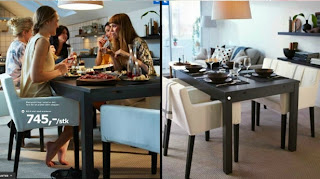Tunisia under the Ben Ali was a dictatorial state controlled by the army and strictly controlled by the police. An impressive fraction of the population worked in this sector and occupied positions of control, surveillance, and control at many levels of society. In North Africa, people frequently joked about the fact that there was a policeman for every three Tunisians.
The press, the internet, and digital communication networks were no exception and the government would often prohibit the expressions of political ideas against the regime.
The spectacular ousting of Ben Ali in Tunisia, Mubarak in Egypt, Gaddafi in Libya, as well as the protests in Yemen, Jordan and the current civil was in Syria all have common point. They all placed media, especially social media at the heart of their communication. There are still debates about the fact that only 5% of the population in Libya had free access to the internet during the uprising, however, thee is no question about the fact that networks like Facebook or Twitter played an important role of exposing the protests on global platforms. Professor Philip Howard from the University of Washington demonstrated in a study that it was indeed possible to predict the future protests based on the content and frequency of debates and discussions on social networks.
For many people, social networks are a leading arena to discuss politics and create democracy. Can you imagine millions of bloggers, internet users in Egypt, Jordan, and Tunisia debating in English and Arabic and sharing their ideas and political views freely, against the systems that have oppressed them and their families for decades in total impunity and with the silent collaboration of western powers.
Nobody could have predicted the existence of such a platform even in the early 2000s.
But beyond the international platform of communication that social media provides, it raises the issue of independence or the independence of the people who use social networks in order to serve a specific political agenda. Do you know who Lina Ben Mhenni or Hamamou Slim are? They are young Tunisian bloggers erected as heroes after the deposition of President Ben Ali. Both were expected to be nominated for the Nobel Peace Prize. They are called cyber activists, cyber dissidents. Most of them are young graduates, teachers, professors, journalists, researchers and activists like Lina Ben Mhenni, a young 28 year old English teacher.
 |
| Slim Hamanou |
 |
| Lina Ben Mhenni |
Their independence and impartiality has been has been questioned when a group of researchers including Oxford University professor , the controversial Tariq Ramadan in a study where he denounces the fact that many bloggers, especially in Egypt attended trainings offered by the U.S. government in Washington. They were trained to use media and the internet in order to mobilize people to non violent protests. These trainings also included teaching about the use of symbols and the importance of discipline when organizing protests. They were funded by organizations close to the US State department such as the Einstein Institute, the Freedom Institute and Google.
In this context, where the interests of the major powers and the aspirations of the peoples of the Middle East are mixed and contradictory we can ask ourselves if social media are actually reliable and do express the aspirations of Arab people in the Middle East or if they are only a way for the great powers to serve their political agenda in the Middle East.
Sources :



